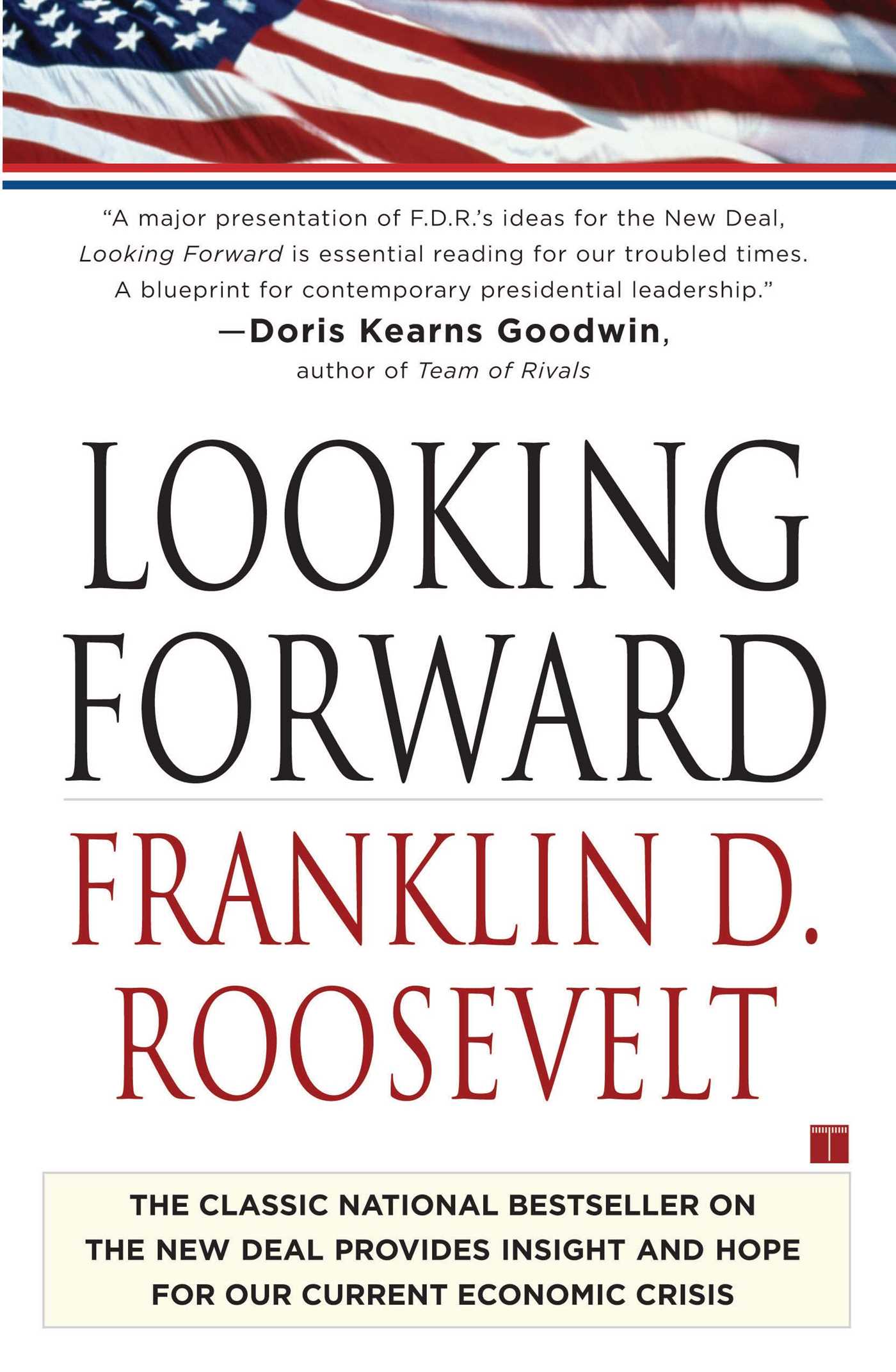Get our latest book recommendations, author news, competitions, offers, and other information right to your inbox.
Table of Contents
About The Book
Published in March 1933 when Franklin Delano Roosevelt was first inaugurated, the classic New York Times bestseller Looking Forward delivers F.D.R.'s honest appraisal of the events that contributed to the Great Depression and mirror our own situation today. With blunt, unflinching, and clear prose Roosevelt attacks head-on the failure of the banking system and the U.S. government and sets forth his reasoning and hope for the major reforms of his New Deal.
Compiled from F.D.R.'s articles and speeches, Looking Forward includes chapters such as "Reappraisal of Values," "Need for Economic Planning," "Reorganization of Government," "Expenditure and Taxation," "The Power Issue," "Banking and Speculation," and "National and International Unity" in which Roosevelt argues for the reassessments and reforms that are needed again in American society and throughout the world today.
An inspiring beacon from the past, Looking Forward sheds critical light on today's turbulent world.
Compiled from F.D.R.'s articles and speeches, Looking Forward includes chapters such as "Reappraisal of Values," "Need for Economic Planning," "Reorganization of Government," "Expenditure and Taxation," "The Power Issue," "Banking and Speculation," and "National and International Unity" in which Roosevelt argues for the reassessments and reforms that are needed again in American society and throughout the world today.
An inspiring beacon from the past, Looking Forward sheds critical light on today's turbulent world.
Reading Group Guide
Get a FREE ebook by joining our mailing list today! Get our latest book recommendations, author news, competitions, offers, and other information right to your inbox.
By clicking 'Sign me up' I confirm that I'd like to receive updates, special offers, including partner offers, and other information from Simon & Schuster Inc. and the Simon & Schuster family of companies. I understand I can change my preference through my account settings or unsubscribe directly from any marketing communications at any time. We will send you an email with instructions on how to redeem your free ebook, and associated terms.
DISCUSSION QUESTIONS: LOOKING FORWARD
1. How is the current economic crisis similar to and different than the Great Depression?
2. LOOKING FORWARD was published in March 1933 when FDR was first inaugurated. Which of FDR’s suggestions for fixing the economy outlined in LOOKING FORWARD were implemented in his presidency and which were not?
3. In the chapter on the failing railroad industry FDR states, “The problem of the railroads is the problem of each and every one of us. No single economic activity enters into the life of every individual so much as do these great carriers.” Do you think the same statement could be made about the auto industry today? Are any of FDR’s suggestions for fixing the railroad industry applicable to the auto industry?
4. In the introduction, FDR states that even in times when the nation is feeling discouraged and depressed if the quality of political leadership is right, this mood “should vanish so utterly that it will be difficult to reconstruct.” Do you think that political leaders can have this positive effect on the mood of the country? Did FDR do this for the American people? Does Barack Obama?
5. FDR states that “We must work towards the time when a major depression cannot occur again; and if this means sacrificing the easy profits of inflationist booms, then let them go—and good riddance.” Do you think that the government programs that FDR introduced in his New Deal such as Social Security, Federal Deposit Insurance, and the Securities and Exchange Commission ensure that a major depression cannot occur again? Is the prevention of depression even possible or inevitable due to human nature and the nature of economic cycles?
1. How is the current economic crisis similar to and different than the Great Depression?
2. LOOKING FORWARD was published in March 1933 when FDR was first inaugurated. Which of FDR’s suggestions for fixing the economy outlined in LOOKING FORWARD were implemented in his presidency and which were not?
3. In the chapter on the failing railroad industry FDR states, “The problem of the railroads is the problem of each and every one of us. No single economic activity enters into the life of every individual so much as do these great carriers.” Do you think the same statement could be made about the auto industry today? Are any of FDR’s suggestions for fixing the railroad industry applicable to the auto industry?
4. In the introduction, FDR states that even in times when the nation is feeling discouraged and depressed if the quality of political leadership is right, this mood “should vanish so utterly that it will be difficult to reconstruct.” Do you think that political leaders can have this positive effect on the mood of the country? Did FDR do this for the American people? Does Barack Obama?
5. FDR states that “We must work towards the time when a major depression cannot occur again; and if this means sacrificing the easy profits of inflationist booms, then let them go—and good riddance.” Do you think that the government programs that FDR introduced in his New Deal such as Social Security, Federal Deposit Insurance, and the Securities and Exchange Commission ensure that a major depression cannot occur again? Is the prevention of depression even possible or inevitable due to human nature and the nature of economic cycles?
Product Details
- Publisher: Gallery Books (January 13, 2009)
- Length: 256 pages
- ISBN13: 9781439148693
Browse Related Books
Resources and Downloads
High Resolution Images
- Book Cover Image (jpg): Looking Forward Trade Paperback 9781439148693




